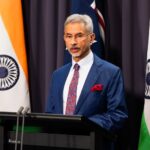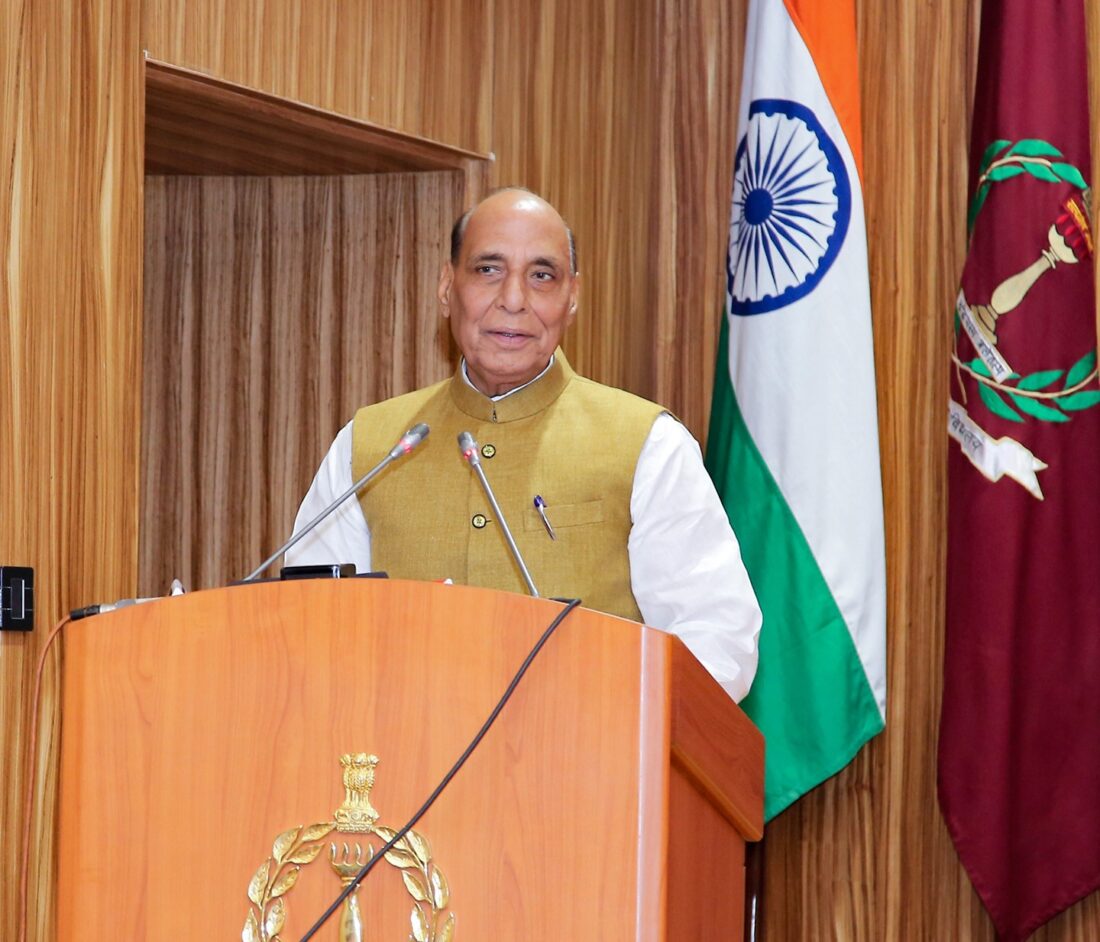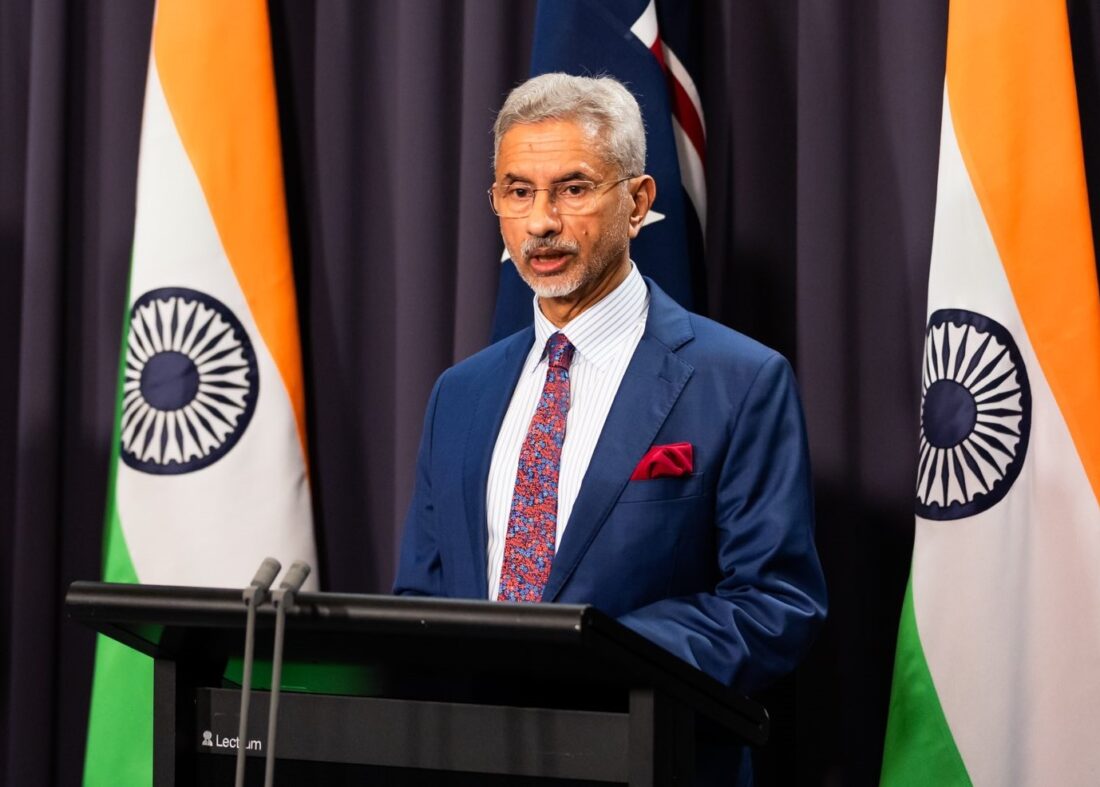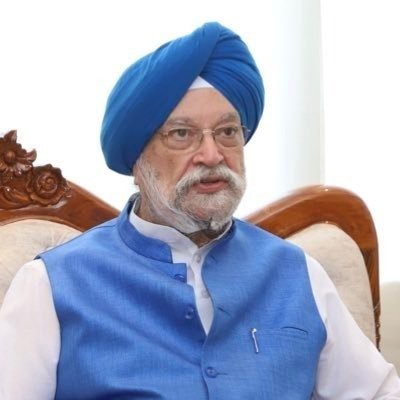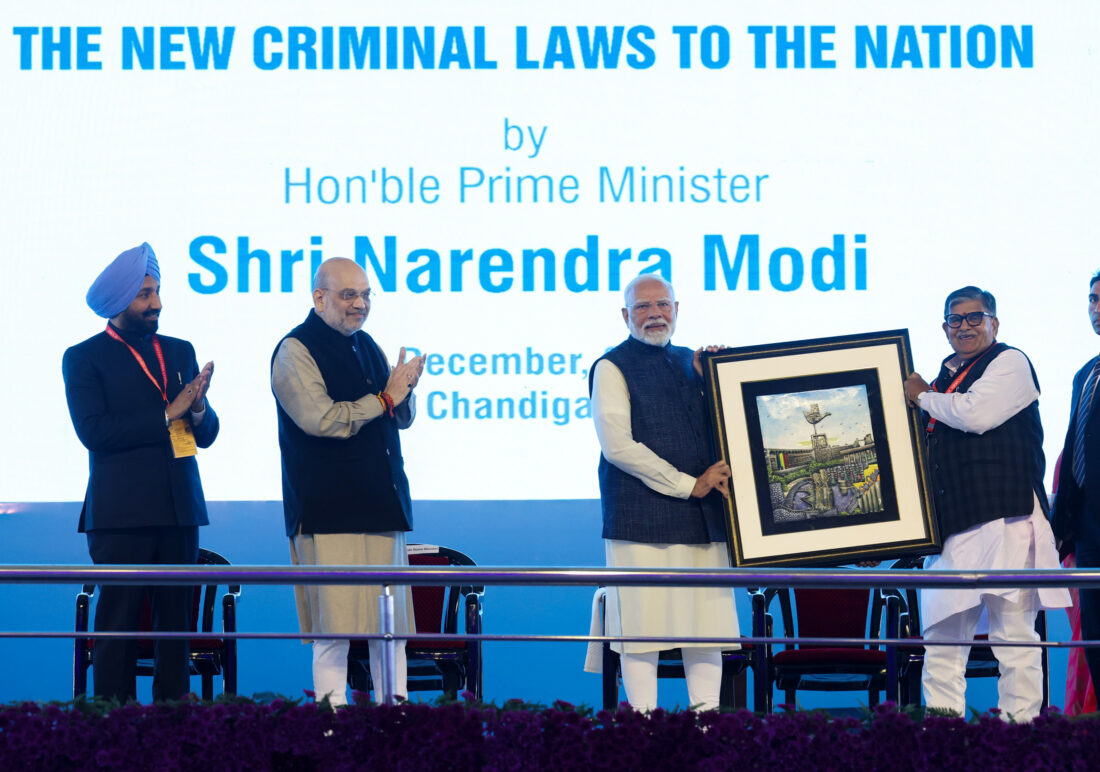North News
New Delhi, October 19
Defence Minister Rajnath Singh urged military leaders on Saturday to embrace critical thinking, adapt to unforeseen circumstances, and utilize the latest technological advancements to maintain a strategic edge in an increasingly complex geopolitical landscape. “Warfare has transcended traditional battlefields, now encompassing a multi-domain environment where cyber, space, and information warfare are as vital as conventional operations. Cyber-attacks and disinformation campaigns have become tools that can destabilize nations without a shot being fired,” the Defence Minister said during the MPhil Convocation of the 62nd National Defence College (NDC) course in New Delhi.
He emphasized that rapid technological advancements are pivotal in evolving a future-ready military. “From drones and autonomous vehicles to artificial intelligence (AI) and quantum computing, the technologies shaping modern warfare are advancing rapidly. Our officers must understand and harness these technologies,” he added.
Defence Minister encouraged officers to become strategic thinkers capable of anticipating future conflicts and leading with intelligence and empathy. He highlighted the importance of in-depth analysis in leveraging niche technologies like AI, while also stressing the necessity of human intervention in decision-making processes to address concerns about accountability.
“Adversaries may weaponise everyday tools and technologies. This potential threat underscores the urgency of our preparations. Institutions like NDC must adapt their curricula to include case studies on unconventional warfare and foster strategic innovation,” Rajnath Singh remarked.
Addressing the ethical dilemmas faced by military leaders, the Defence Minister underscored the significance of academic learning in ethics, philosophy, and military history to equip officers for sound decision-making. Singh reaffirmed the government’s commitment to developing a technologically advanced military capable of responding to emerging threats and safeguarding national security.
He urged defence institutions like NDC to maintain dynamic and relevant curricula, stressing that learning should extend beyond the duration of formal courses. He proposed introducing online short-term modules to broaden access to knowledge for officers across various geographical locations.
Rajnath Singh also recognized the NDC’s extensive alumni network as an invaluable resource for fostering a collaborative learning environment that enhances the professional development of defence personnel. He congratulated the officers of the 62nd NDC Course for receiving their MPhil degrees, especially those from allied nations, viewing them as vital links between India and their respective countries.
The event was attended by Defence Secretary-designate RK Singh, Commandant NDC Air Marshal Hardeep Bains, and other senior officials from the Ministry of Defence.


